
In a world where rudeness is pervasive, why not differentiate from the rest by being thoughtful, respectful and considerate of others? You don’t even need to go to an etiquette school for that. You only need to learn a thing or two about the things you’re not supposed to do, especially after 40.
After all, “etiquette isn’t about snobbishness,” says Marie Betts-Johnson, president of the International Protocol Institute of California. “It’s about inherent respect for everyone.” To avoid standing out for your bad manners, stay away from making these serious etiquette mistakes.
Not RSVPing in due time
RSVPing in real life is not the same as replying “maybe” to an invite on Facebook. For you, no RSVP might mean you’re not going but for the person who invited you, it’s just confusing and annoying. Is it really that hard to say yes or no?
“There is a lot of effort that goes into planning an event…so you want to be a considerate and respectful guest by responding to the RSVP,” says Bonnie Tsai, founder and director of Beyond Etiquette, an etiquette and communications training company. So, how quickly should you be offering a confirmation? Tsai suggests responding no more than 48 hours later.
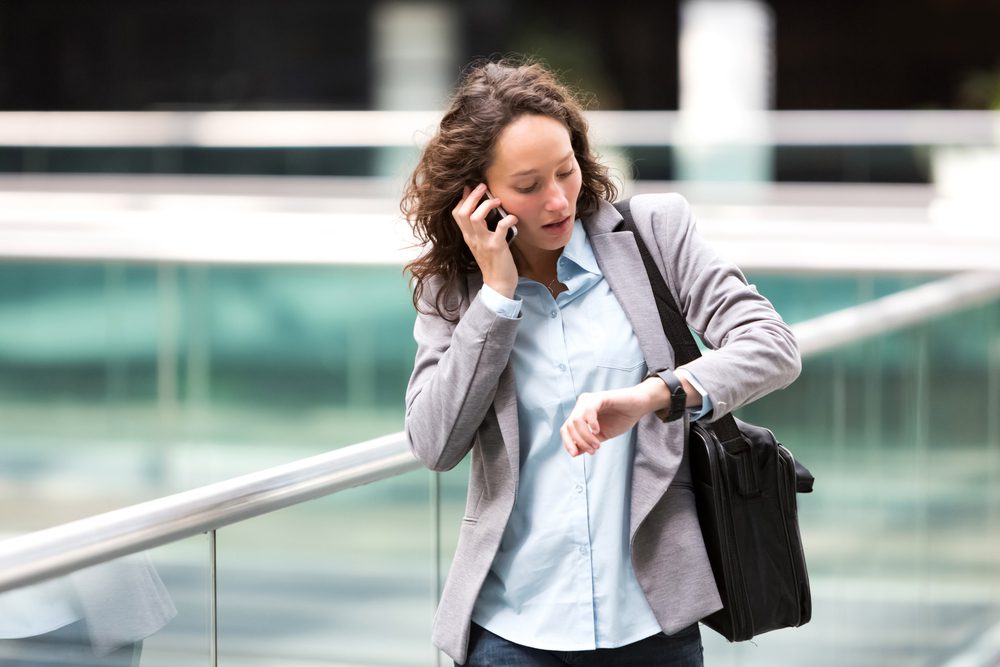
Turning up late
Being late after you’ve missed your alarm clock or got stuck in traffic can be acceptable. But if you’ve been making a habit out of showing up late, whatever the occasion, then it’s just plain rude, especially if you don’t call to give the person waiting for you a heads up.
“Showing up late tells others that your time is more valuable than theirs,” says Tsai. If another person gives their time to be with you, then you should at least show some respect and tell them you’re not arriving on time.
“To be punctual, you must arrive at the right point and on time. Etiquette, such as punctuality, is vital and can make or break one’s reputation,” says Karene A. Putney, president of business-etiquette company Etiquette Etiquette.
Not bringing gifts to parties
You might not be the richest person out there, but that’s not an excuse to show up empty-handed at a party. “When you’re invited to an event or dinner party, it’s important to bring a gift as a token of appreciation to your host,” says Tsai. No matter how small, it’s a gesture of gratitude on your behalf. The host will surely appreciate it, trust me!
Just make sure you buy something appropriate for the type of event you’re invited to, not bottles of wine for a child’s party or scented candles for a guy’s birthday party.
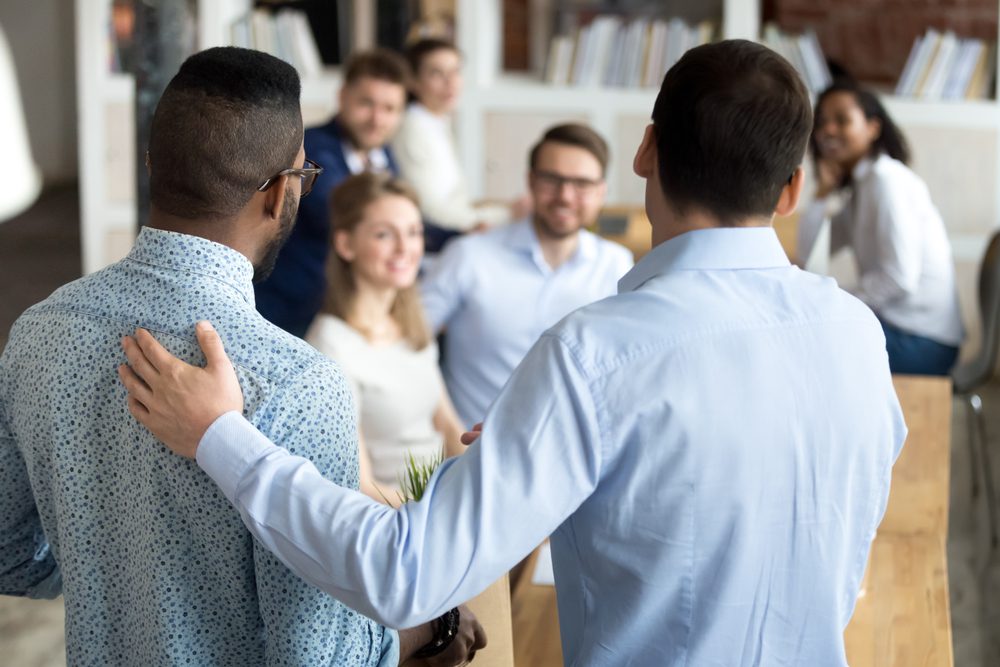
Not introducing people
Just because you know everyone, doesn’t mean every person in your inner circle is familiar with everyone as well. Hence, the introductions. However, “when you fail to introduce everyone in your party, it doesn’t make each person feel valued and it also sends a message to the other person that they aren’t worth knowing,” says Toni Dupree, founder of Etiquette & Style By Dupree, a Houston-based etiquette and finishing school. “When in doubt, always play it safe and introduce people who might not know each other to avoid making anyone feel left out.” It takes less than a minute to do it!
Not thanking your host
If you remembered to bring a gift, complied with the protocol of introducing people to each other and arrived on time at the party, don’t forget to thank and compliment the host when everything is over. Otherwise, you might be making a serious etiquette error.
“Your host has provided you with an experience and even if providing a gift, following up the next day to express appreciation is a thoughtful, nice touch and the right thing to do,” says etiquette expert Norah Lawlor, a contributor to “Manners That Matter Most: The Easy Guide to Etiquette at Home and in the World”.
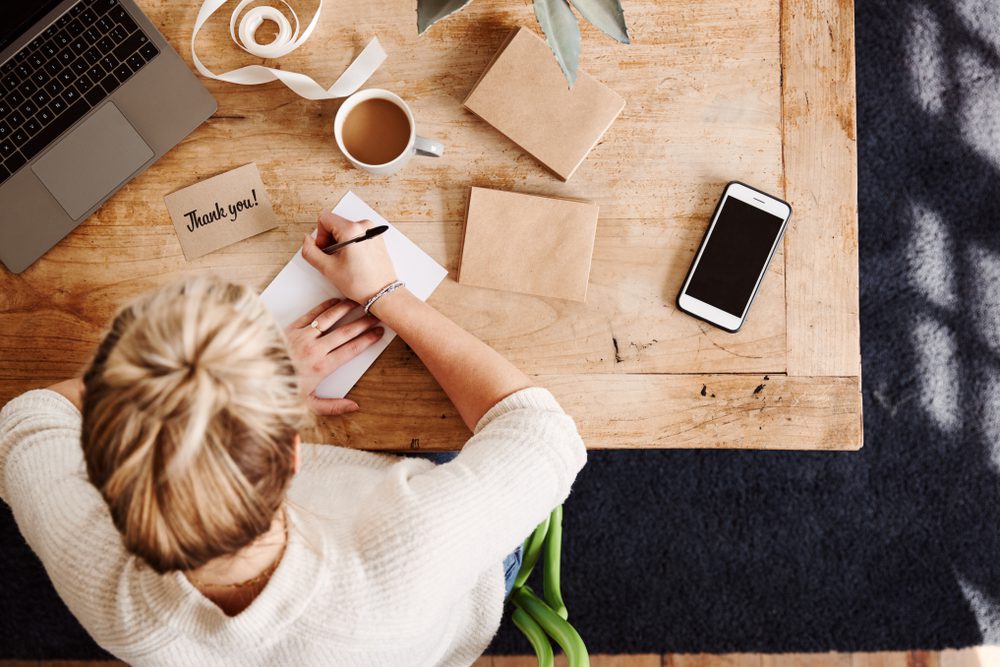
Not sending “thank you” notes in general
It might seem obsolete, like, who does that anymore? Polite people who follow etiquette rules, that’s who. If you’ve received a gift, sending a “thank you” note is a very nice gesture. “Don’t forget to send a hand-written ‘thank-you’ card” after receiving a gift, says Betts-Johnson. “It’s not old-fashioned—it’s a powerful tool that makes you memorable.”
Leaving your napkin on the table instead of in your lap
What is the very first thing you should do when you sit down at the table? It sure isn’t placing your phone beside you, like most people do. It’s actually placing your napkin on your lap. According to etiquette expert Karen Thomas, founder of Karen Thomas Etiquette, failing to do so is considered a terrible faux pas.
“The napkin should be placed in your lap immediately upon sitting, even before other people get there, with the folded side pointing up toward your waist,” says Thomas.

Drinking before you’ve acknowledged a toast
Toasts are traditional forms of acknowledgment that follow a certain protocol. This means there’s a certain order everyone should follow the moment someone starts a toast. If you think you’re doing nothing wrong by sipping on your champagne as soon as someone’s toast has finished, think again.
According to etiquette expert Jacquelyn Youst, owner of the Pennsylvania Academy of Protocol, you should simply refrain from drinking, “return the toast, and then you can sip your drink.” Not a second sooner!
Eating with your elbows on the table
It’s not just a rule your mother used to impose; across cultures and throughout history, eating with your elbows on the table has long been considered impolite and downright taboo. “If the salad comes and we’re eating, no elbows on the table,” says Thomas. “Once the wait staff takes it away, we can rest our elbows on the table until the next course comes,” Thomas adds.
It might seem a little aristocratic but according to Henry Hitchings, author of Sorry! The English and Their Manners, elbows on the table “embodies two ideas, that at mealtime one shouldn’t do anything that inconveniences other diners, and that a meal is a formal occasion where one shouldn’t behave in an overfamiliar fashion”.

Talking with food in your mouth
Well, we can full-heartedly agree with this one. No one cares for seeing a close-up of what the other person’s eating. Therefore, no matter how interesting the story you want to tell might be, just wait until you’re finished with your bite.
“Be mindful to keep your mouth closed when chewing,” says Dupree. “Finish chewing, swallow, and then join in the chat—and if the moment has passed, so be it.” Here’s to table manners and chewing with your mouth closed!
Passing just the salt
If you are asked to pass the salt, don’t pass just the salt! It might sound weird but by not passing both the salt and the pepper, you’re breaking a serious etiquette rule. “In etiquette terms, the salt and pepper are married,” explains Thomas. “People just don’t know that they’re supposed to be passed together, but it is something people should be aware of.”
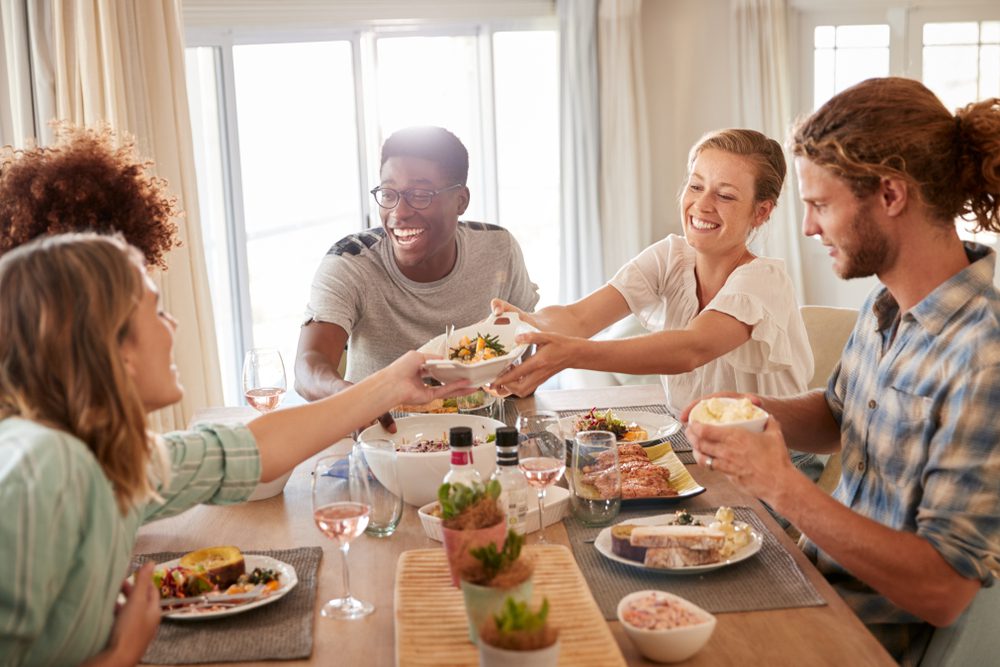
Reaching across the table
If in a moment of hunger you’ve reached for a bread roll, just know you’re not the only one. Most of us made this etiquette mistake, thinking it’s way better than asking someone else to pass it on to you. Unfortunately, reaching over someone while they’re eating is very unpleasant. Why? “Because your personal space is being invaded by the reacher,” explains Thomas. “It’s also a germ situation: My hand and my arm are now invading the space in which you’re consuming food.”
Instead of reaching across the table, “if it’s far enough away that you have to stand to reach it, you shouldn’t do so and you should ask instead,” says Thomas.
Pointing at people
“It’s rude to point”. I’m sure you’ve heard this old adage before, but what exactly makes pointing at people so rude? First of all, pointing at other people is considered rude because it’s associated with blame and accusation. Secondly, you make the person you’re pointing at an object of scrutiny, no matter how subtle you think your gesture is. “This rule dates to the primitive days when the pointing finger was considered to administer a hex—and, in its conspicuity, to risk attracting the attention of a stranger who might reply with an evil eye,” explains Slate‘s “Gentleman Scholar” Troy Patterson.
Instead of using your index finger, Tsai suggests “gesturing with an open palm instead—it’s much more welcoming and neutral.”
Yawning Without Covering Your Mouth
Yawning without covering your mouth in public is like coughing or sneezing. Equally contagious and rude. It may be difficult to refrain from yawning but it’s also difficult for other people to see the insides of your mouth. “Yawning is a sign that you’re tired, so it is polite to cover your mouth and even apologize for yawning while talking to someone,” says Anne Chertoff of Beaumont Etiquette.
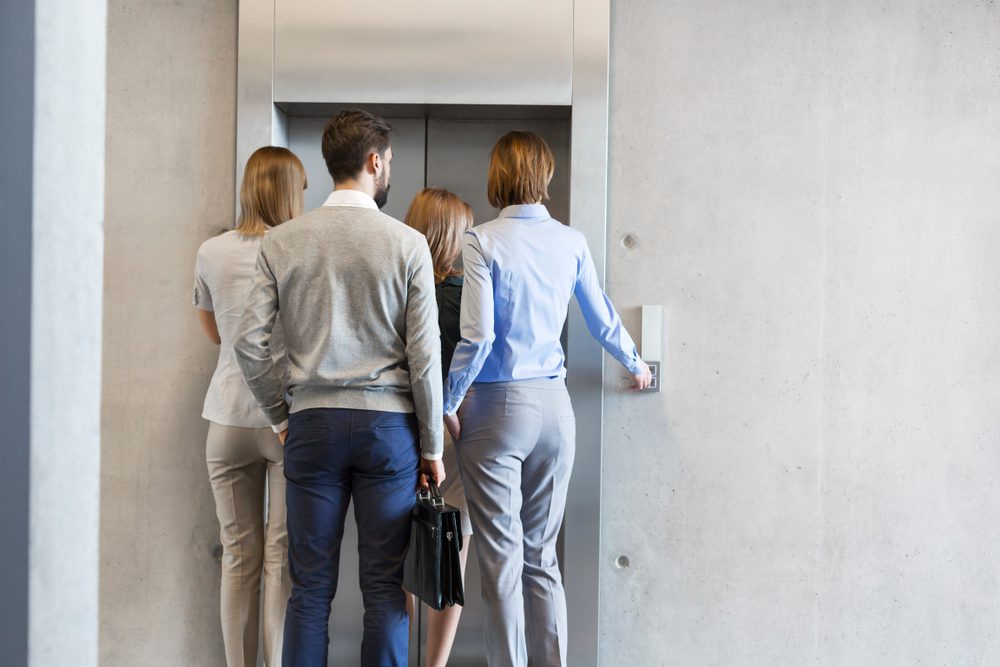
Getting in an elevator without letting others off first
Another no-no in the etiquette world is boarding an elevator without waiting for people to get off first. Sadly, people still do it.
“Knowing the proper way to enter and exit an elevator should be learned by the time you are a teenager,” says Youst. It’s quite simple actually, although some people make it seem way complicated than it is. Stand to one side and allow to doors to open so that everyone can disembark. If you’re the first, you can board once everyone’s out; if not, wait patiently for people standing closest to the doors to enter first.
Not holding the door
Generally, when you walk through a door right before someone else, the polite thing to do would be to hold the door for them as well. But what if there’s another person behind them and so on? Do you become the new doorman and hold the door for everyone? Or do you just walk away at the risk of seeming rude?
According to Thomas, this door-traversal issue has a simple solution: “Whoever arrives at the door first holds it for the people behind them.” However, you’re not compelled by etiquette rules to hold the door forever but only for whoever is directly behind you, and only if they can get there by the count of three.
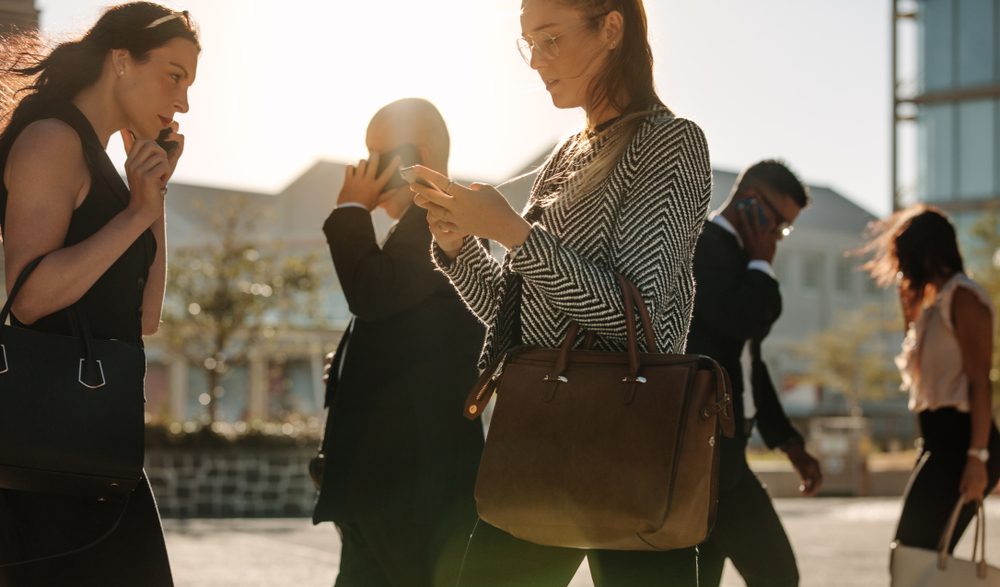
Not saying “excuse me” when getting past someone
If you’re at a party and want to get to the food table, or at a concert and need to go to the toilet, or simply on a crowded sidewalk rushing to get to work, don’t just try to get by like you own the place. Failing to say “excuse me” “is absolutely one of the rudest things somebody can do,” says Thomas. “We’re all in a hurry. What that says is that ‘I’m more important than you and I don’t need to be kind.'”
Do you really want to be that kind of person?
Ordering while on your phone
It happens sometimes. You’re waiting in line to get your favorite Starbucks coffee and your phone rings. It’s okay to answer it and talk to whoever is calling while you’re still waiting but once you’re ready to order, it’s just a faux pas to keep talking while simultaneously trying to order. it’s not only rude to the person behind the counter but also to the person you’re on the phone with.
“Your undivided attention should be given to the barista, server, or clerk,” says Thomas. “The phone call should never interfere with the transaction.”
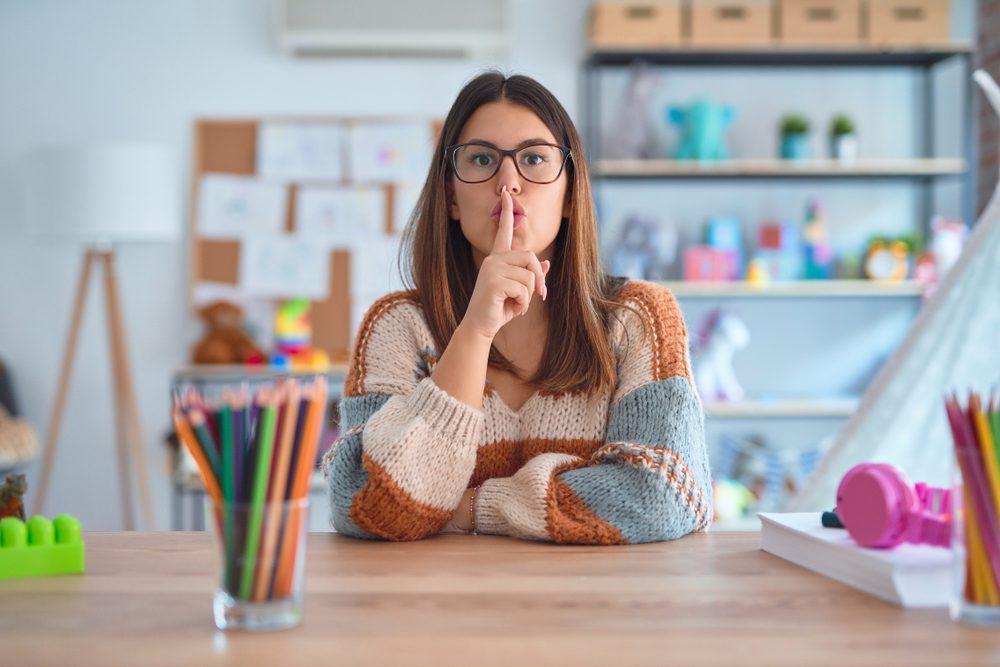
Shushing people
We all know certain people that just shouldn’t be allowed to speak in public. Not ever! But as much as we would like to make them stop, shushing them is not the way to do it. “Shushing is a huge faux pas,” Thomas says. “Nobody should be stopped when they’re talking, with the exception of a teacher quieting a student.”
Shushing is rude, dismissive and patronizing, and can even lead to serious conflicts, as no one likes to be shushed. Do you?
Interrupting
We’ve all been there: you start telling a story when all of a sudden you get interrupted by someone else who starts telling his own story. You can kiss yours goodbye! News flash for people doing it: nobody likes someone who interrupts people all the time, no matter how good your story is. When you stop someone mid-sentence, it seems like what you have to say is more important than what they are sharing. It shows a complete lack of interest and disregard for the person talking.
“People are just excited and they want to get their point across, and they don’t realize that it’s rude, but it is,” says Thomas. “They should really stop and listen when the other person is speaking, take a moment to digest what they’ve said, and wait to respond instead of interrupting.”
Giving Unsolicited Advice
You should know by now that nobody likes to be told what to do, not even if the other person’s intentions are good. Of course, this does not mean you have to be downright rude whenever you receive a piece of unsolicited advice. Proper etiquette states you can politely tell them you don’t need it.
“It is okay to say to stop someone from giving unsolicited advice, but the process in doing so must be polite,” says Thomas. “Rather than cutting someone off or putting your hand in their face, the better way to go about it would be, ‘Thank you for your opinion, but I’m going to go in a different direction.’ It’s all in the delivery.”

Not responding to emails in a timely manner
Many people receive tons of emails on a daily basis. But volume is not a good enough excuse for not responding, especially when it comes to job-related email. It’s unprofessional and rude. It’s also a serious etiquette mistake when it comes to personal emails. “It leaves the sender guessing,” says Lawlor. Plus, “they could infer a particular answer due to not responding.”
Leaving your read receipts on
Plenty of people keep their read receipts on, voluntarily or not. In case you don’t know what that is, a read receipt is a notification that shows the person sending the message that you’ve opened and read their text. This means there’s no way you can say you haven’t seen their message.
So, why is it rude to keep them on? Well, if you don’t text back right away, it might seem like they’re not important enough to be answered in a timely manner. “Reading a message without responding for more than a day, even in a personal setting, is really unacceptable,” says Thomas. “If you read their text, you need to get back to them. The rule is within a day in personal settings and in business, it’s two to three days.”

Answering the phone with something other than “hello”
While Joey Tribbiani’s catchphrase might seem like a good opening phrase for a phone conversation, “Whatcha doing” is not the proper way to answer your phone. “Howdy”, “Heyya” or “What’s up” are also considered etiquette mistakes when starting a conversation, especially if it’s not a casual one.
So, what exactly should you say? “Proper phone etiquette states that there should be a greeting, whether that’s ‘hello’ or ‘good afternoon,'” says Thomas.
Leaving your phone’s sound on
Rude mobile phone users can be found anywhere there’s a signal. One of my biggest pet peeves when it comes to them is having to listen to their music blasting from their phones or their sounds effects from whatever game they are playing.
It’s annoying, disruptive and completely disrespectful, especially if you’re in an enclosed space, like an office. No one should be forced to go through an audio torture session just because you have bad manners. According to Thomas, when your phone rings, “you’re to do one of two things: Answer it immediately or turn it down. When you’re in the office, you should have it off.”
Texting While Talking to Someone
Another habit that’s frowned upon is texting while someone else is talking to you. Really? Is it that important that you can’t pay attention for a couple of minutes to what the other person I saying?
“The person in front of you comes first,” says Napier-Fitzpatrick. “If you’re having lunch with someone, your phone shouldn’t even be somewhere you should see it.” If you do need to take an important call or reply to someone, “your phone should be in your pocket on vibrate, and you should let the person know ahead of time that you might be taking a call and excuse yourself to do it,” recommends Patricia Napier-Fitzpatrick, founder and president of The Etiquette School of New York.
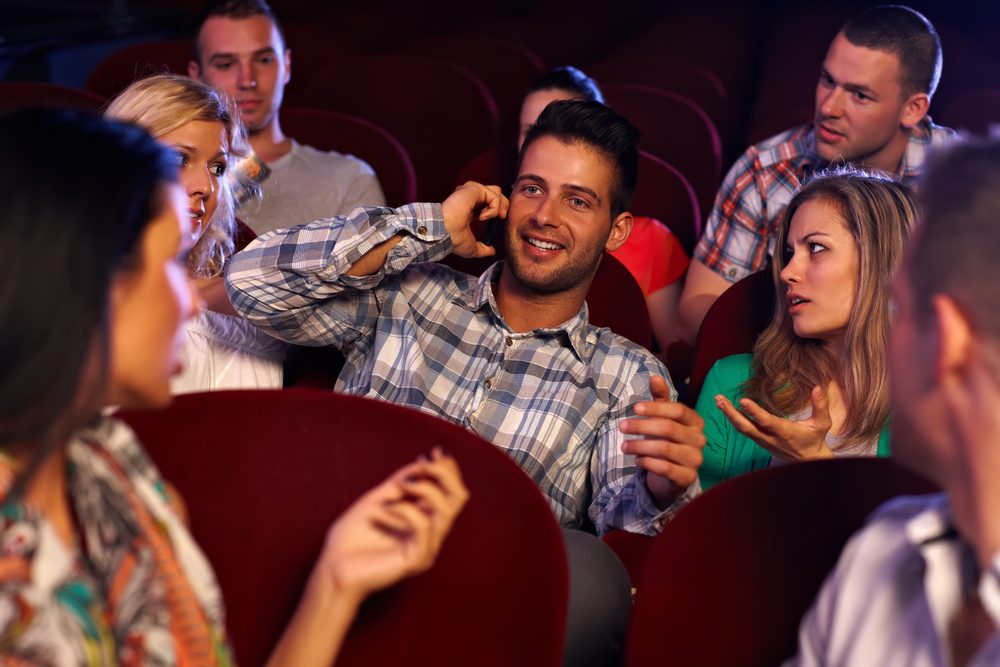
Talking in movie theaters
Most people go to the cinema to enjoy a good movie. Others think it’s the perfect place to strike up a long conversation, either on the phone or with other people in their group. But guess what? Movie theaters are not an appropriate place for you to talk about what you did last summer (no pun intended).
“Talking before the movie? Absolutely. Once the lights are dim, even if it’s the previews? All talking should cease,” says Thomas. By the time you’re forty, you should know that if you do need to say something during a movie, “it should be in a very light whisper and not loud enough for the rest of the theater to hear”.
Putting your bag or feet on an unoccupied seat
Speaking of bad manners, here’s another one: occupying an empty seat with your bag or worse, your feet. It’s not only rude, it’s also inconsiderate of other people. Whether you’re on a train, bus or even at the cinema, you’ve only paid for one seat. In some states, you could even get fined for occupying two seats! “When other people enter and the space needs to be occupied, you should move [your bag] immediately,” says Thomas, who considers this kind of practice “8 out of 10” on the rudeness scale.

Vaping indoors
Vaping indoors is technically allowed but this doesn’t mean you should just go ahead and do it. Most people still don’t like being surrounded by clouds of smoke, no matter if they’re cherry or vanilla scented.
“The perception that e-cigarettes are different to cigarettes seems to encourage the user to think that they do not have to be considerate of others in their use,” says Lawlor. To avoid being perceived as rude, use your e-cigarette outdoors or at least ask for permission to use it from the people you’re with.
Leaving your hat on indoors
Some things never change and the “take your hat off indoors” rule is one of them. Regardless of the reasons why you feel like keeping your hat on in someone’s house, it’s still considered an etiquette blunder. “For the gentleman, wearing a hat indoors is not acceptable,” says Thomas. It’s perceived as impolite and disrespectful because it gives the impression that you’re in a rush to leave.
“Gentlemen should remove the hat, even in a casual restaurant. The only time a baseball hat should not come off for a gentleman is at the baseball park,” adds Thomas. Women are slightly off the hook with this one: “Ladies can get away with wearing their fashionable hat indoors, like at a wedding or a church,” says Thomas. Other than that? A big no-no.
Dressing too casually for public events
If you’re not dressing to the occasion, you’re committing a huge etiquette blunder. Stick to the specified dress code, and if the invite doesn’t have one, don’t hesitate in asking your host for details before showing up wearing something inappropriate. “Dressing right shows respect for those around you and self-respect for your own image,” says Lawlor.
“Going out of the house dressed properly is still a rule we see being followed today,” says Sam Whittaker, a life coach and editor at Mantelligence. “Wearing the right clothes and maintaining a classy look are things we still see as proper and essential in order to appear presentable, which is why we are still seeing this in play.”

Grooming in public
There are just some things you cannot do in public and grooming is one of them. If you’re using your phone screen as an extension of your bathroom mirror to fix your hair, check if there’s something stuck in your teeth or apply makeup, it’s time to stop.
In the world of social etiquette, grooming is not something that should be carried out in public. “Any personal grooming should be done in the bathroom,” says Thomas. It is disrespectful to subject other people to things that should be done behind closed doors.
On that note, check out 10 Embarrassing Things Most People Do But Don’t Want to Admit.
Using the last of something without replacing it
How many times have you thought about drinking or eating something the minute you get home, only to find out that it’s no longer there? Or went to the bathroom and discovered there’s no toilet paper?
If you’re the last person eating something from the fridge or using a product, it would be in your best interest to replace it, unless you want to deal with the wrath of the people you live/work with. “Whether it’s toilet paper or ketchup, you should replace it,” she explains. “It goes against the very nature of etiquette to not do so.”
Not making eye contact
It’s true that in some cultures, direct eye contact is considered rude and even intrusive, but in most places around the world, not making eye contact is way worse. “Making eye contact when you’re having a conversation with another person shows respect for that other person and shows that you have confidence,” says Napier-Fitzpatrick.
“Making eye contact when speaking depicts a level of professionalism and as well assurance, particularly on the topic of discussion,” adds Karene A. Putney from Etiquette Etiquette. This doesn’t mean you are not allowed to blink. According to Napier-Fitzpatrick, “we should make it 40 to 60 percent of the time when we’re talking to someone. […] It makes you a better listener and it shows that you’re interested in what the other person is saying.”
























1 thought on “The WORST Mistakes You Need to Stop Making By Age 40”
This article is a great “refresher” course for us mature folks who may have forgotten
these social skills due to these hectic times AND to younger folks who were never taught. The old adage still prevails “there should be no excuse for bad manners”.
Nu mai există comentarii de afișat.